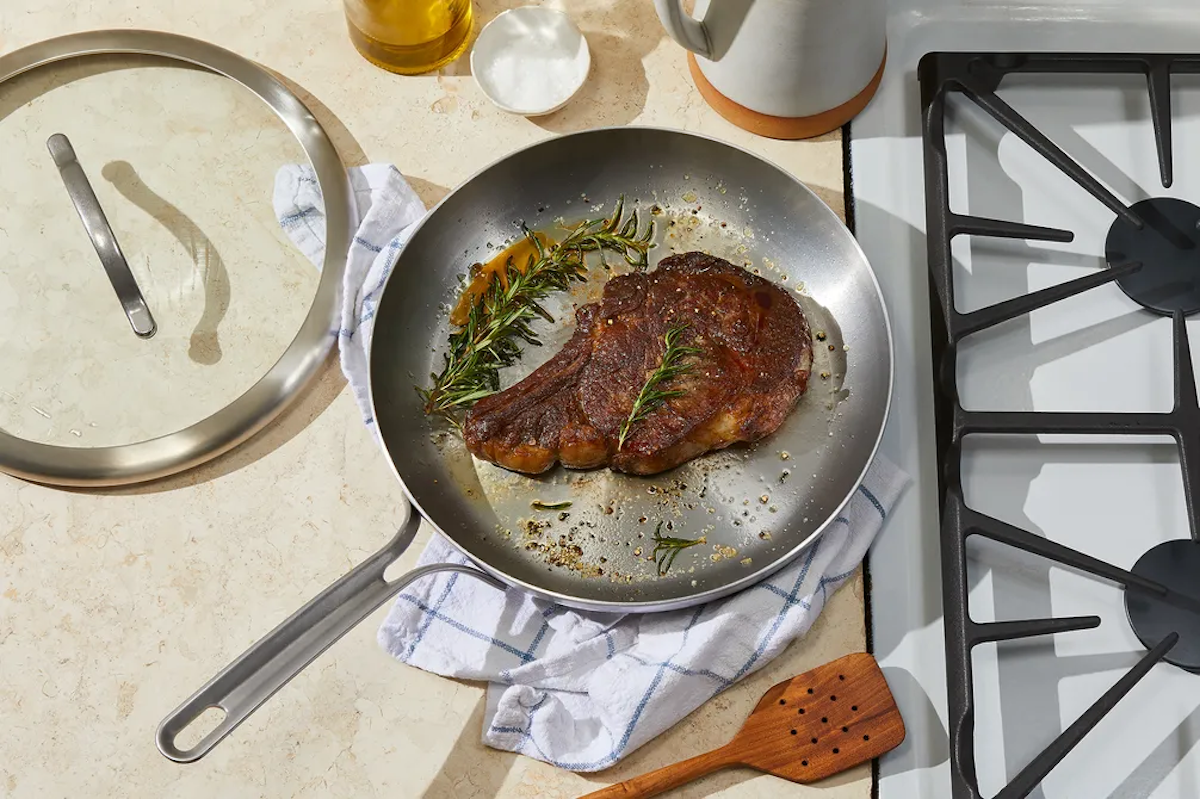clean to procrastinate.
So it was bittersweet when, a few years ago, by way of dinner party chaos, I accidentally discovered a trick that both dissolves all of the burnt build-up on my dirtiest dishes with ease, and is nearly completely hands-free.
It is shamefully simple: Drop a dishwashing detergent pod into the dirty dish in question, fill with hot water, and let sit for a few hours. Then, scrub for mere moments with a sponge — any crusty, gunky residue will melt right off.
Recently, I felt incredibly validated when a variation of the trick went viral in a post by @carolina.mccauley on TikTok: Click to watch.
In her video, McCauley plugs the drain of her kitchen sink, fills it with hot water, and tosses in two dishwashing detergent tablets. She then lets her dirty stove top grates soak, submerged, for some amount of time. When she pulls them out later, they are spotless, sans scrubbing.
Since discovering her video, I've begun to branch out with the trick, and have successfully used it on my own stove top grates as well as metal cookware, like my fish spatula and a metal slotted spoon that often battles with congealing cheese in various pasta sauces. As in McCauley's video, two tablets are sometimes needed for bigger, messier jobs, but one typically does the trick for a pot or pan and several utensils. The amount of pressure you'll need to apply for the micro-scrub (truly, it is only necessary for a few seconds) varies based on the stickiness of the mess, with something like completely carbonized bits on the tougher end of the scale, and eggy cheesy remnants on the easier end.
Unfortunately for my future in Professional Procrastination, no matter the offending mess, the method has worked each time like magic, leaving me free to . . . work. Or . . . return text messages. Or . . . exercise.
Now, is a hyper-concentrated soak in dishwashing detergent the smartest thing for the longevity of your pots and pans, or grates, or utensils? One source points out that it's wasteful, but doesn't comment on whether it's necessarily bad for the pots. Another mentions that it can be a harsh experience for your skin. But whether it's actively degrading for the kitchenware, I could not tell you.
Unless I ran a series of elaborate tests and trials — in which case, I might have a new way to procrastinate.




Shares